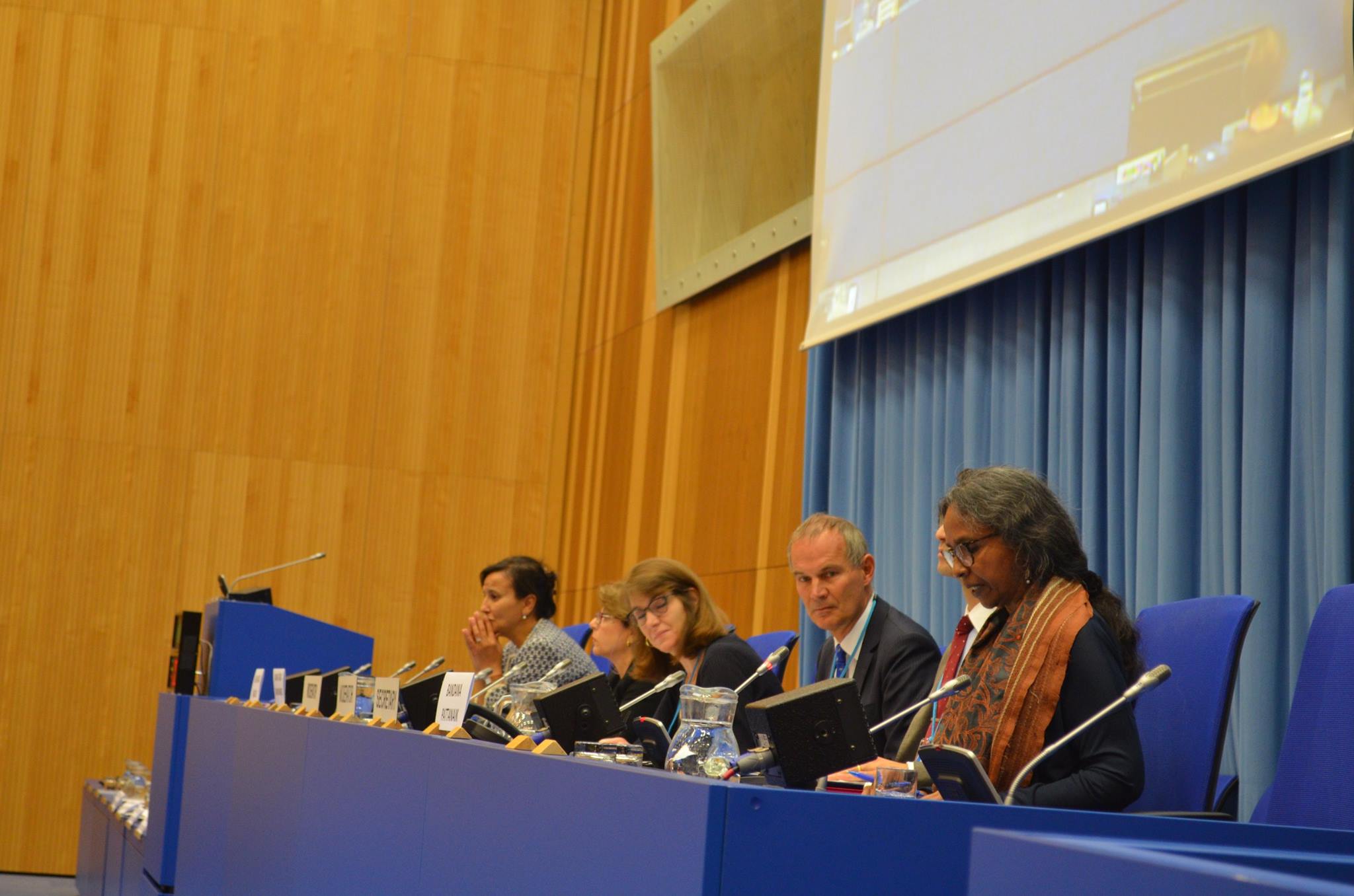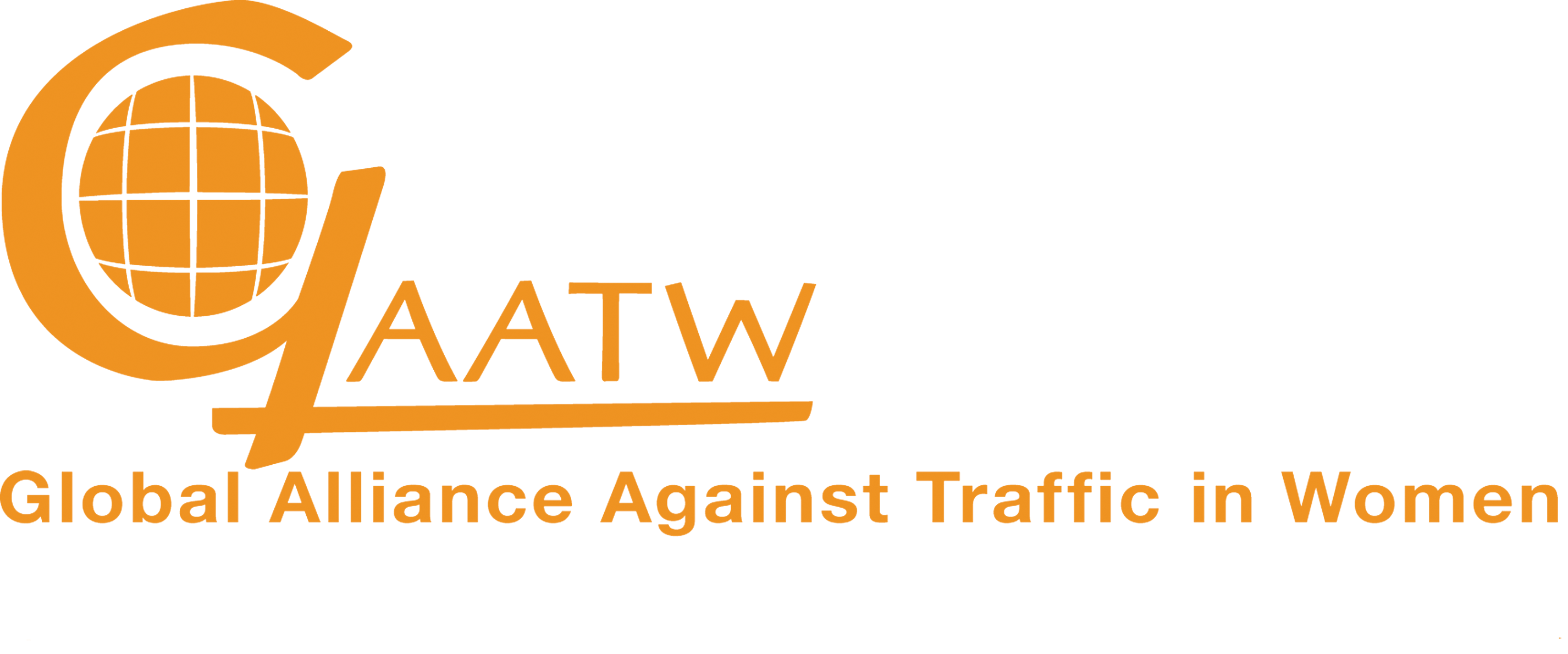Speech by Bandana Pattanaik at the fifth Global Compact thematic consultation
Speech delivered by Bandana Pattanaik, International Coordinator of the Global Alliance Against Traffic in Women (GAATW), at the fifth thematic consultation ‘Smuggling of migrants, trafficking in persons and contemporary forms of slavery, including appropriate identification, protection and assistance to migrants and trafficking victims’
5-7 September 2017, Vienna, Austria
Panel 3: Appropriate identification, protection, and assistance to migrants and trafficking victims
 First, I want to acknowledge the debt I owe to the many survivors of trafficking and migrant workers, some of whom have organised themselves to advocate for their rights, and whose lived experiences, struggles, extraordinary courage and resilience have taught me what I know about the realities of migration and work in today’s world.
First, I want to acknowledge the debt I owe to the many survivors of trafficking and migrant workers, some of whom have organised themselves to advocate for their rights, and whose lived experiences, struggles, extraordinary courage and resilience have taught me what I know about the realities of migration and work in today’s world.
Before I talk about the issue of rights protection and assistance, I’d like to say a few words about the context in which we currently live and work. The international community has undertaken an extremely ambitious task by deciding to work on a Global Compact for Safe, Orderly and Regular Migration. The world we live in today looks anything but safe and orderly and human security is at an all-time low. Rising income and wealth disparity have polarised people within the same society and the many layers of discrimination and social inequalities have not gone away despite the efforts at several levels in all parts of the world. As the 2017 Oxfam report An Economy for the 99% points out, just eight men have the same wealth as the poorest half of the world. At the World Economic Forum this year, even those who were the most eloquent proponents of economic globalisation a decade ago, called for a fundamental rethinking of the current economic model. The Oxfam report called for a more humane economy, an economy for the 99%! To this worrying data on rising inequality, if we add just two of the more obvious threats to human security - climate change and the crises in democracy in many parts of the world - the bleak picture is almost complete.
Rights-based Governance for Migrants’ Rights
RIGHTS-BASED GOVERNANCE FOR MIGRANTS’ RIGHTS
Global Compact for safe, orderly and regular migration: Thematic consultation on international cooperation and governance of migration in all its dimensions, including at borders, on transit, entry, return, readmission, integration and reintegration
19 and 20 June 2017, Geneva
Position paper by the Global Alliance Against Traffic in Women (GAATW)
Rights on Paper and Rights in Practice: Critical assessment of the implementation of anti-trafficking legislation in Bolivia, Colombia and Guatemala
Governments are responsible to tackle human trafficking and protect and assist trafficked persons. Civil society, for its part, is responsible for monitoring states’ compliance with their obligations and mandates as defined in national and international legislation. To do so, it is necessary to have accurate information how governments implement these policies.
In 2016, Fundación la Paz in Bolivia, Corporación Espacios de Mujer in Colombia and ECPAT in Guatemala, together with the Global Alliance Against Traffic in Women (GAATW), carried out an assessment of the implementation of anti-trafficking legislation in the three countries. What we found was that there was still a significant gap between the rights that trafficked persons are entitled to ‘on paper’ and the services that they receive in practice.
The assessment allowed us to systematise the available information on human trafficking in the three countries, giving clarity about the responsibilities of each governmental body and the degree of compliance. Although policies can be improved, it would be a good starting point for governments to at least fulfil their existing obligations.
Rights and Justice for Migrant Women in the Changing World of Work
In the past several decades globalisation, unequal development between and within countries, and conflict and environmental degradation, have prompted unprecedented levels of international migration. It is estimated that there are currently nearly 250 million migrants worldwide, half of whom are women. In developed countries, demographic changes, such as aging societies, a larger female workforce, and labour market shortages prompted by a move towards service-oriented economies have created a demand for (low-wage) female workers, especially in the hospitality and care work sectors, and the entertainment sector. In developing countries, economic restructuring and industrialisation have led to the loss of traditional livelihoods, with a disproportionate effect on women, pushing many to seek work outside their communities. At the same time migration policies have not responded to this change in labour market supply and demand, leading to increasingly precarious migration and work for many women, especially those with lower education and social status.
In the past 20 years, feminists, including GAATW, have tried to bring attention to the violence, abuse and exploitation that women experience in the process of their labour migration. GAATW has tried to stress women’s perspectives, and had detailed the unintended consequences of protectionist policies like the anti-trafficking initiatives undertaken by states in ‘Collateral Damage’ back in 2007. However, the conversation about trafficking has backfired and contributed to further violating the rights of migrating women. Governments of destination countries have restricted migration opportunities, especially for low-wage workers, and increased border controls, while origin countries have placed restrictions on women’s mobility, to ‘protect’ them from trafficking. However, instead of protecting the migrant women workers, these restrictions have led to a market for clandestine and debt-financed migration, leading to the very vulnerabilities including risk of violence and trafficking that they were intended to prevent.
Women: Agents of Change or Victims of Abuse? Reporting Women’s Labour Migration
Across South Asia women leave their homes in the hope of improving their economic and social status and securing better lives and livelihoods. South Asian countries actively promote migration as an employment option and a foreign exchange earner but at the same time they fail in their responsibility to protect the rights of their migrant workers and citizens. Both countries of origin and destination have weak labour laws with many female-dominated jobs falling outside the purview of labour laws and regulations.
The media play a crucial role in shaping public perception about migrants and influencing migration policies. In South Asia migration is a hot topic for the media, however, most reports tend to be unbalanced and sensationalised. While men are portrayed as workers and active agents seeking to improve their lives, women are too often presented as vulnerable, passive victims of abuse. Migrant women’s immense contribution to their family and society, as well as their strength, courage and resilience in the process of migration, are rarely highlighted. In response, many South Asian countries enact protectionist restrictions on women’s mobility rather than measures to protect and strengthen their rights.
Response to UN Women's consultation on sex work
Dear UN Women,
Thank you for the opportunity to submit a contribution to your ‘Consultation seeking views on UN Women approach to sex work, the sex trade and prostitution’.
This submission is made by the International Secretariat of the Global Alliance Against Traffic in Women (GAATW) and the member organisations listed as signatories at the end of this document.
The Global Alliance Against Traffic in Women (GAATW) is an Alliance of more than 80 non-governmental organisations from Africa, Asia, Europe, LAC and North America. The GAATW International Secretariat is based in Bangkok, Thailand and co-ordinates the activities of the Alliance, collects and disseminates information, and advocates on behalf of the Alliance at regional and international levels. Member Organisations include migrant rights organisations; anti-trafficking organisations; self-organised groups of migrant workers, domestic workers, survivors of trafficking and sex workers; human rights and women's rights organisations; and direct service providers.
GAATW-IS statement on Amnesty International’s policy on sex work
28 May 2016
The International Secretariat of the Global Alliance Against Traffic in Women welcomes Amnesty International’s ‘Policy on State Obligations to Respect, Protect and Fulfil the Human Rights of Sex Workers’, developed after two years of in-depth research and consultations with sex workers and various other stakeholders.
GAATW was launched over twenty years ago in order to challenge the dominant discourse on trafficking as occurring exclusively in the sex industry and of the women in the sex industry as pitiful victims of exploitation. As feminists, we have stood in solidarity with women in both the formal and informal economy, including the sex industry, and have maintained that even in the most difficult situations, women demonstrate extraordinary power, agency and resilience. Sex workers’ struggle for rights is the same struggle as that of women, migrants and workers around the world.
Migration bans do not protect the rights of women, only push them into taking more risky options
Statement by the Global Alliance Against Traffic in Women on the occasion of International Women’s Day
Stringent border control has often been used as a measure to stop human trafficking and members of the Global Alliance Against Traffic in Women (GAATW) have raised their voices against such misguided, ineffective and discriminatory measures.
Today, on International Women’s Day, GAATW is calling for an end to restrictions placed on migration of women domestic workers in some parts of the world! These bans have been justified as a way to prevent trafficking, exploitation and abuse. Not surprisingly, such policies have made women vulnerable to abuse rather than making their migration safe. Instead, states need to empower women to exercise their rights by focusing on non-discrimination, access to education and training, protection of their citizens abroad and creation of more safe and legal migration opportunities.

